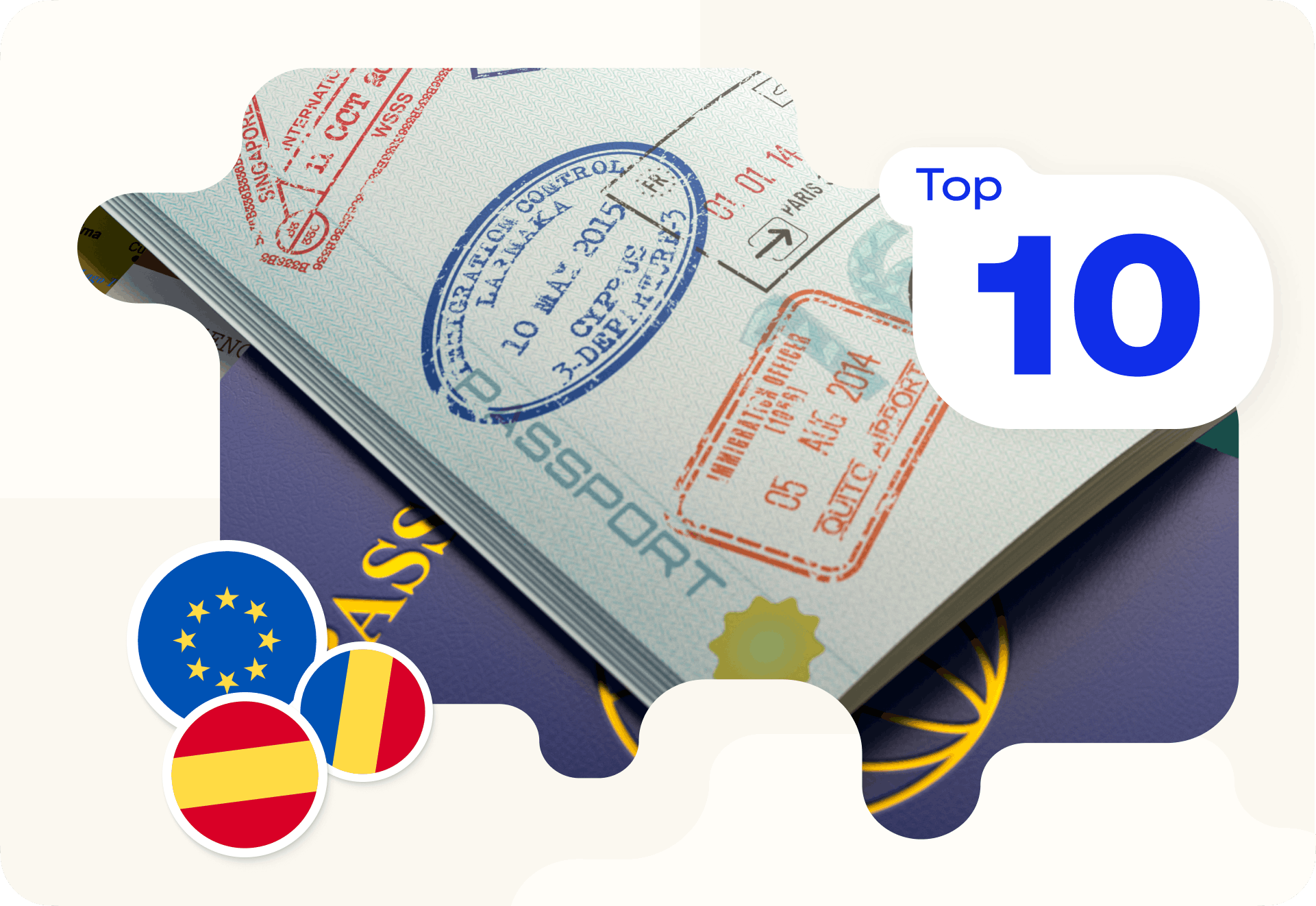Laws regulating immigration, international work, and other issues related to Global Mobility change frequently. That makes it critical for employers and the international workers they hire to stay informed of the latest news.
Some of the most important changes in the world of Global Mobility in 2025 have already occurred, and will continue to take place in Europe. Will any of the updates affect how you hire talent and manage your workers?
The United Kingdom tightens immigration requirements
Major immigration reforms in the UK are intended to address the country's reliance on overseas recruitment to fill lower-skilled jobs.
The biggest changes in and for the remainder of 2025 are:
- Disqualify 111 occupations from the Skilled Worker visa program
- Increase English-language requirements for immigrants
- Digital e-visas - eliminating physical stickers - from 15th July
- Increase in Salary thresholds for Skilled worker visa
- Low skill/salary roles only permitted via the new Temporary Shortage List with stricter access and no dependents allowed
- Visa Sponsorship fee increased in April
Italy to issue more non-EU work visas
Italy will issue nearly 500,000 new work visas to non-EU nationals between 2026 and 2028 to address growing labor shortages and demographic decline. In 2026 alone, 164,850 new entries are planned, following over 450K permits issued between 2023-2025. The quotas reflect real demand from employers, particularly in agriculture and food production.
This move comes as Italy’s population continues to shrink, with 281,000 more deaths than births in 2024 and an overall population drop of 37,000. To stabilize population levels by 2050, Italy would need to admit at least 10 million immigrants. The visa programme is part of a dual strategy: promoting legal migration while maintaining a hardline stance on irregular arrivals.
European Union moving toward border digitalization
The EU is moving toward a digital travel permit system similar to the UK ETA. Some parts of the system will roll out before the end of 2025, but others have been delayed to 2026.
European Union to automate Entry/Exit System (ESS)
EU officials expect to introduce an Entry/Exit System (ESS) in October 2025. The system will automatically register travelers when they cross an EU external border. However, it will only work for visa-exempt and short-stay visa travelers.
When someone crosses a border, ESS will record their:
- Name
- Date and place of their entry/exit
- Biometric data (fingerprints and facial images)
- Type of travel document
Once functional, this should make it easier for some travelers to move about EU member states.
ETIAS delayed until 2026
The European Travel Information and Authorization System (ETIAS) has been delayed again. EU Home Affairs Ministers now say the system will become functional near the end of 2026.
ETIAS has features intended to increase border security while streamlining border checks. For instance, pre-screening will help ensure that travelers don't pose any security or migration risks before they reach the border. Those who meet the requirements should find it easier to enter the EU.
Schengen member and border changes
Countries within the Schengen Area abolished their common borders to allow easy travel. However, the Schengen Agreement allows countries to enforce temporary border checks when it's necessary. At least two countries will take advantage of that option in 2025.
Belgium summer border checks
Belgium Prime Minister Bart De Wever has said that curbing migration is an important goal for the country. Belgium's government is also concerned about "asylum shopping." It will, therefore, assert summer border checks at major entries, including some roads, trains, and flights.
Some of the knock-on consequences for the broader Schengen area includes:
- Border delays and economic costs - with 10-30 minute delays expected per crossing, as well as the trade costs being increased due to these delays by 0.4%-0.9% per controlled border entry.
- Supply chain and commute disruption - with around 1.7 million people commuting daily across Schengen borders, even short checks can erode the regions’ economic efficiency.
- Normalizing internal controls - the more countries that normalize the use of Article 23 of the Schengen Border Code weakens Schengen’s principle of passport-free movement.
The government says it cannot provide accurate data about illegal immigration until it takes these steps.
Poland asserts border checks with Germany and Lithuania
In a move similar to Belgium's, Poland began asserting border checks at the beginning of July to discourage asylum seekers. Poland's checks will focus on the borders it shares with Germany and Lithuania.
The border checks are already impacting business travel. For example, German business groups have noted that commuters and business travellers can no long reliably or punctually get to work in border regions. Helena Melnikov, Germany Chamber of Industry and Commerce, warned that, “when commuters at the German-Polish border can no longer reliably and punctually get to work, there’s a danger they will permanently look elsewhere - with consequences for the skilled labor shortage in federal states like Brandenburg” [Source] - a direct hit on cross-border business mobility.
Border officials say they discovered a smuggling operation within mere minutes of instituting the controls. The country says it will take a strategic approach to limit traffic disruptions.
Cyprus to join Schengen
Although the timeline isn't clear, Cyprus says it is on track to join the Schengen Area. Cyprus joined the EU in 2004, but it hasn't become part of the Schengen Area. President Nikos Christodoulides says his country will complete all technical requirements before the end of 2025, so Cyprus could officially join by 2026.
Keeping up with changes in Global Mobility
Countries have exceptional powers to change their border and immigration policies quickly. When Poland announced it would begin enforcing stricter border controls, it managed to implement some of the enhanced rules within a day.
These rapid changes might signal a change in how many countries, especially those in Europe, plan to prevent undocumented immigration and enforce security at their borders. Even though many of these changes are temporary, they can have a chilling effect on business mobility and international employment.
Localyze is here to adjust to evolving rules and streamline processes. No matter where your team members live, we can assist with issues that might arise during permanent relocations, business trips, and workations.
Want to learn more about how our platform can help your business and its workers? Get a free demo to learn more.




